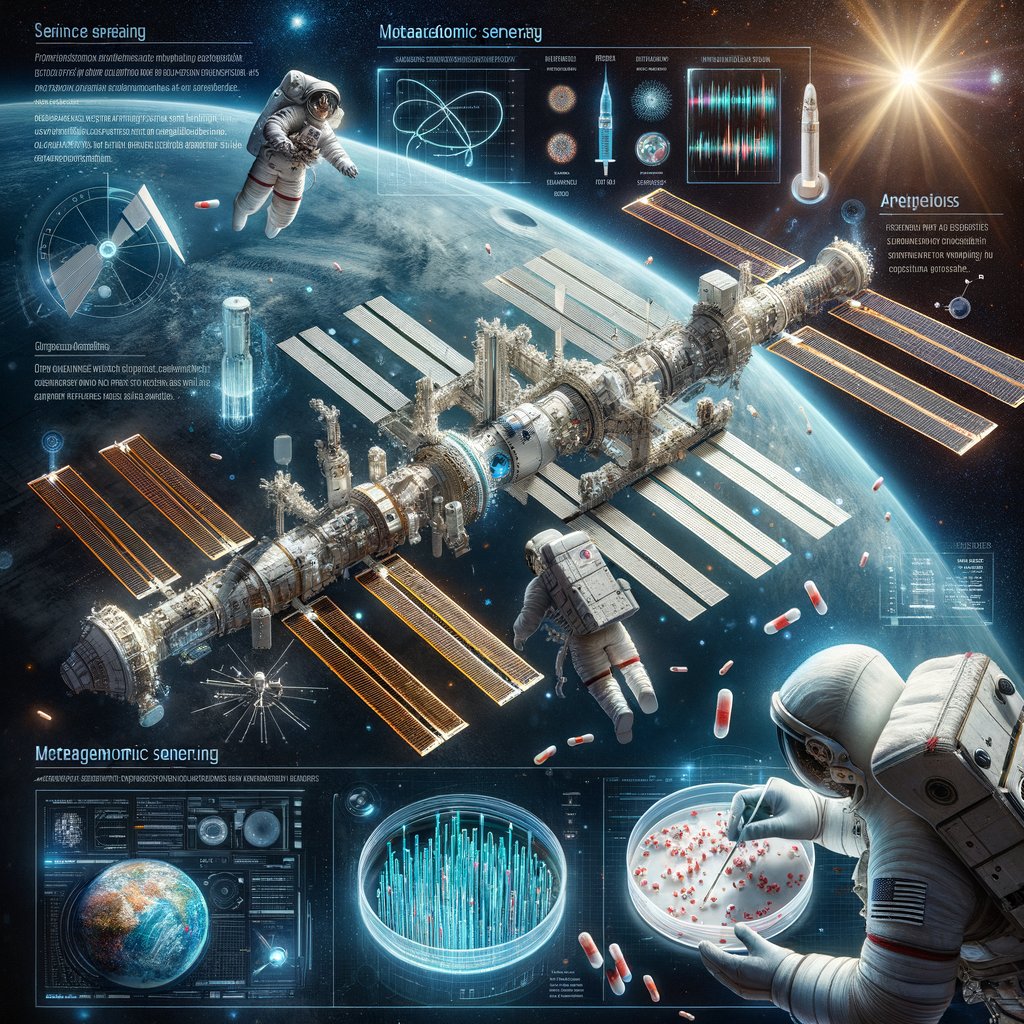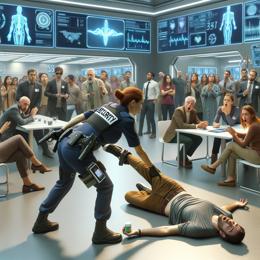Image created by AI
NASA's Groundbreaking Experiment on the ISS May Revolutionize the Fight Against Antibiotic-Resistant Bacteria
In response to the escalating threat of antibiotic-resistant bacteria, NASA has initiated the Genomic Enumeration of Antibiotic Resistance in Space (GEARS) experiment on the International Space Station (ISS). This groundbreaking study not only aims to safeguard astronaut health but also holds potential benefits for medical practices on Earth, particularly in managing hard-to-treat infections that pose a significant global health risk.
Undertaken in partnership with the Ames Research Center in California's Silicon Valley, GEARS tackles the challenge of rapid identification and analysis of antibiotic-resistant bacteria in the unique environment of space. This critical research explores the behavior and adaptation of microbes in microgravity, where traditional Earth-based research methods may fall short.
Focusing on Enterococcus faecalis, a bacteria known for its role in hospital-acquired infections and a prominent resident of the human gut, the GEARS team is examining how these bacteria survive and possibly evolve outside of their usual human host environment. By involving astronauts in swabbing various parts of the ISS and analyzing these samples using advanced metagenomic sequencing techniques, NASA aims to achieve a more nuanced understanding of microbial dynamics in space.
Sarah Wallace, a NASA microbiologist and co-principal investigator of the study, highlighted the significance of the research in preparing for longer-duration space missions to the Moon and Mars, where resupply missions are more infrequent and carrying effective antibiotics is crucial for crew safety. This experiment successfully launched aboard the 30th SpaceX commercial resupply services mission in March 2024, and has already provided promising initial insights indicating lower than expected levels of resistant bacterial colonies.
Beyond its implications for space travel, GEARS holds transformative potential for Earth-bound medical applications, particularly in quickly identifying and treating infections that are resistant to antibiotics. By developing a rapid and accurate workflow for bacteria analysis, the techniques honed in the GEARS experiment could significantly reduce the time needed to diagnose and respond to infectious threats in clinical settings, potentially saving thousands of lives each year.
This initiative not only advances our understanding of health in space but also underscores NASA’s broader commitment to using space research to drive medical innovations that can have profound impacts on public health worldwide.










